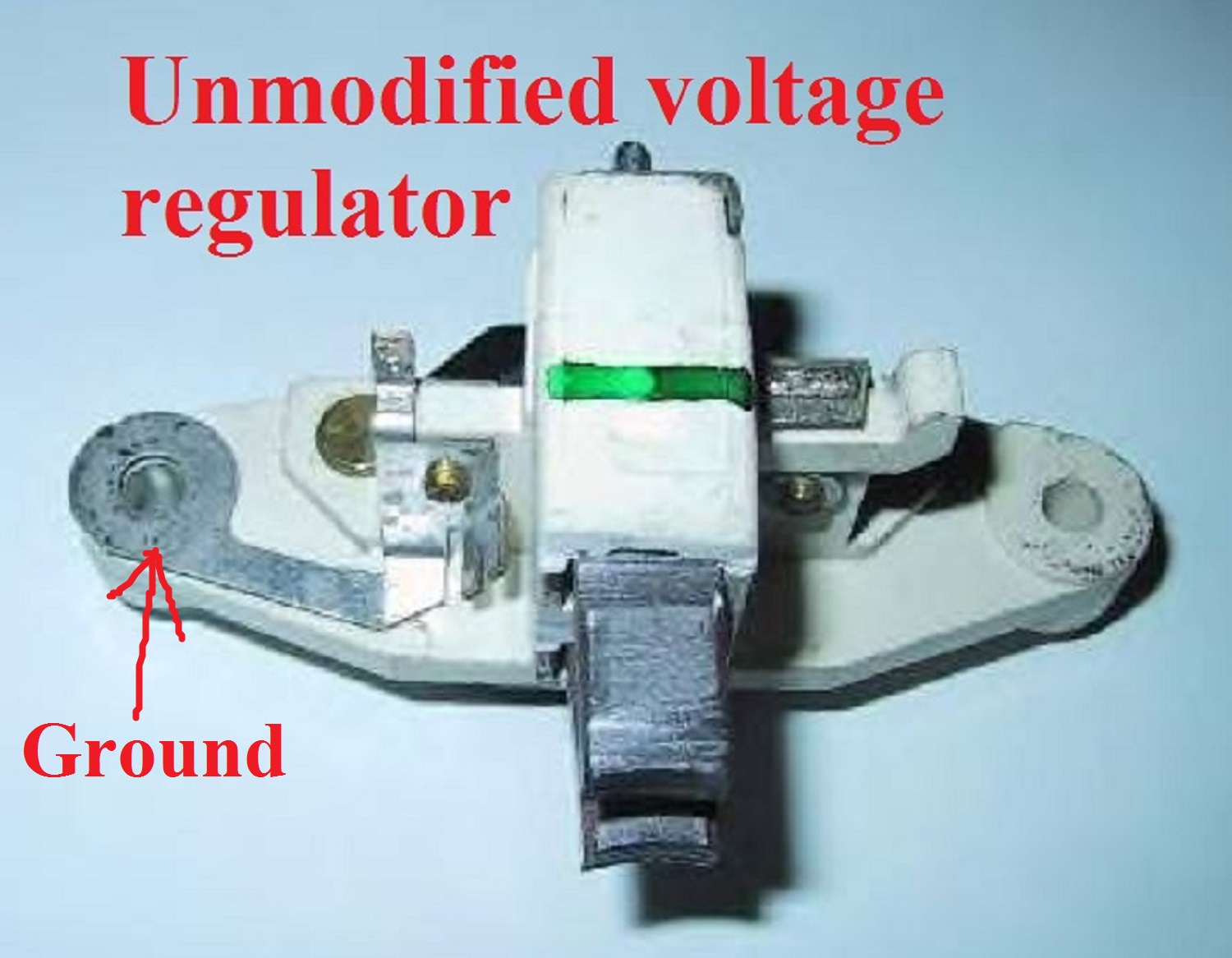Yes, a bad ground can cause an alternator to overcharge. Poor or corroded connection between the alternator and the battery prevents the alternator from regulating its output correctly, causing it to produce an excessive amount of voltage and charge the battery at a higher rate than necessary.
The alternator provides a crucial power supply to the various electrical components of a vehicle. It converts mechanical energy into electrical energy to power the battery and the electrical system. However, a bad ground connection can interrupt the communication between the alternator and the battery, leading to an overcharge. This results in multiple issues, including a higher risk of acid boiling, which can damage the battery, or the production of high-voltage sparks, which can cause a fire hazard. That’s why it’s essential to check the ground connection regularly and keep it clean and secure to avoid any potential problems.

Credit: www.peachparts.com
Understanding Grounding In Alternator
Grounding is an essential aspect of an alternator’s functionality. It refers to the connection made between a component and the earth to maintain stability and avoid electrical interference. Without proper grounding, an alternator may fail, and its components may be damaged.
Grounding helps in the flow of electrical current between the alternator and the earth, preventing any potential overcharge or electrical shortage. The ground wire is connected to the alternator casing, providing a stable electrical connection. Grounding in an alternator ensures a safer and more efficient power generation process.
Grounding is vital in alternators to guarantee their smooth functioning and avoid any electrical mishaps.
Effects Of Bad Grounding On An Alternator
A bad ground in an alternator can cause various issues, including overcharging. When grounding is bad in an alternator, it can lead to several detrimental effects. One of the most significant effects is that the alternator may overcharge the battery.
When the alternator is supplying excessive voltage to the battery, it can cause damage and reduce the battery’s lifespan. Another sign of a bad grounding in the alternator is dimming headlights. If the grounding isn’t secure, the alternator can’t supply the necessary voltage, resulting in weaker electrical output.
Paying attention to these signs can help prevent further damage to the alternator and the battery. Keep an eye on your vehicle’s electrical system and address any grounding issues promptly.
Symptoms, Causes Of Alternator Overcharging, And How To Fix It
Causes Of Bad Grounding In An Alternator
Bad grounding in an alternator can lead to overcharging. Loose or corroded cables are common culprits. Poor connections between cables and terminals can cause a break in continuity. Damage to the alternator can cause it to malfunction. A faulty battery can also be a contributing factor.
Adequate earthing ensures that the current flows correctly. It’s important to keep the grounding in check to avoid potential issues. Seek professional help if you’re unsure why your alternator is overcharging.
How To Diagnose And Fix Bad Grounding In An Alternator
Several issues can cause an alternator to overcharge, and a bad ground is one of them. Here are some ways to diagnose and fix bad grounding in an alternator. Start by checking and cleaning ground cables then ensure proper connections.
If you suspect a faulty battery, replace it. But if the problem persists, seek professional alternator repair services. It’s essential to ensure that your alternator is functioning correctly to prevent further damage to your vehicle’s electrical system. By addressing any bad grounding issues in due time, you can save yourself from significant repair costs and maintain the longevity of your car.
Frequently Asked Questions For Can A Bad Ground Cause An Alternator To Overcharge
Can A Bad Ground Cause An Alternator To Overcharge?
Yes, a bad ground connection can cause the alternator to overcharge, leading to damage to the battery and other electrical components.
How Do I Know If My Alternator Is Overcharging?
You can check the voltage reading on your battery with a multimeter. If it reads above 14. 5 volts, your alternator may be overcharging.
What Are The Signs Of An Overcharging Alternator?
The signs of an overcharging alternator include a burning smell, dashboard warning lights, and a battery that is hot or swelling.
Conclusion
Overall, a bad ground has the potential to cause an alternator to overcharge. While it may not always be the root cause, it is a crucial factor to consider. If you notice any signs of a bad ground, it’s important to address the issue immediately to avoid any further damage to your vehicle.
Regular maintenance and inspections can also help you catch any potential issues before they become a bigger problem. Remember, the alternator is an essential part of your vehicle’s electrical system and a faulty ground can put a strain on it, leading to overcharging or even complete failure.
By being proactive and attentive to your vehicle’s needs, you can avoid costly repairs and ensure that your car remains safe and reliable on the road.


